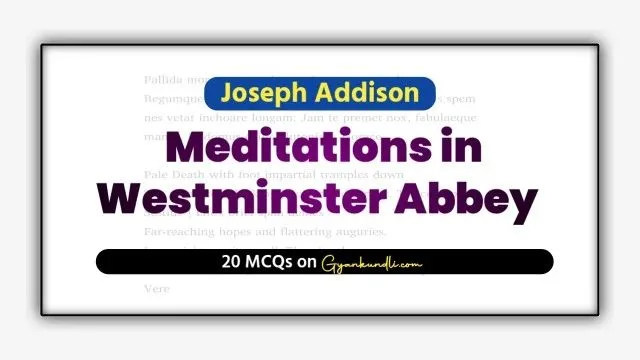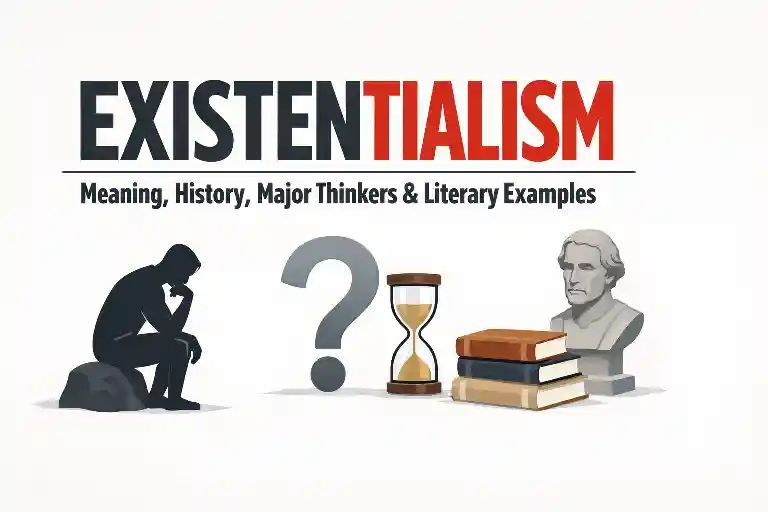Meditations in Westminster Abbey MCQ Quiz : Joseph Addison, one of the greatest essayists of the eighteenth century, stands out as a writer who combined intellect, humour, and moral reflection in perfect harmony. Though his play Cato brought him political recognition, it is through his essays in The Tatler and The Spectator that his literary fame rests secure. Among these, Meditations in Westminster Abbey remains one of his most memorable and thought-provoking works, revealing his calm temperament, serious humour, and deep understanding of human nature.
Addison describes how he often visits Westminster Abbey whenever he is in a serious or contemplative mood. The Abbey, with its solemn silence and air of reverence, fills his mind with thoughtful melancholy rather than sadness. Surrounded by graves and inscriptions, he reflects on the brevity of life and the vanity of human distinctions. The Abbey becomes for him a place where worldly pride and glory lose their meaning, reminding him that death is the great leveller which spares no one. Kings, commoners, priests, soldiers, and poets all rest together, reduced to dust in a “promiscuous heap of matter.”
As Addison walks among the tombs, he observes with gentle irony that most epitaphs record nothing more than the dates of birth and death, leaving the entire story of a man’s life untold. He humorously compares such people to the characters in heroic poems who are known only because they were “knocked on the head.” His satire extends to the pompous and extravagant inscriptions which praise the dead beyond truth, as well as to the overly modest ones written in Greek or Hebrew, unreadable to most visitors. He is particularly critical of the monument of Sir Cloudesley Shovel, a brave English admiral misrepresented as a fashionable beau reclining on velvet cushions. Such false representations offend Addison’s sense of truth and simplicity, for he believes that epitaphs should faithfully reflect a person’s real character.
Through his quiet observation, Addison conveys a profound moral message. The Abbey, filled with the remains of countless generations, becomes a reminder of the vanity of human ambition. He feels that when one looks upon the tombs of the great, every emotion of envy dies away, and when one reads the epitaphs of the beautiful, every passion is subdued. The sight of graves softens the heart and teaches compassion, humility, and detachment. Reflecting upon the dates on the tombs—some belonging to people who died recently and others centuries ago—Addison imagines the final day when all men will be contemporaries, appearing together in the presence of eternity.
In Meditations in Westminster Abbey, Addison turns a simple visit to a graveyard into a profound reflection on life, death, and the folly of human pride. His clear prose, gentle humour, and serene wisdom make this essay a timeless meditation on the equality of all mankind and the moral peace that comes from accepting the inevitability of death.
Meditations in Westminster Abbey MCQ Quiz
Discover more from Gyankundli
Subscribe to get the latest posts sent to your email.













